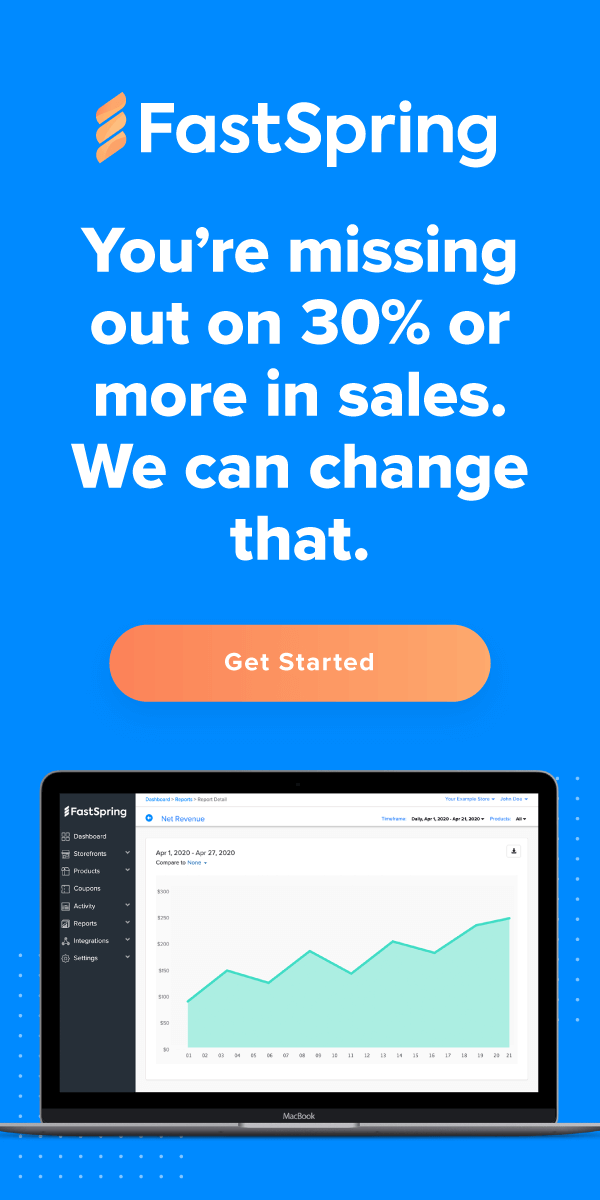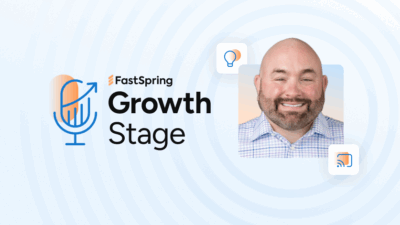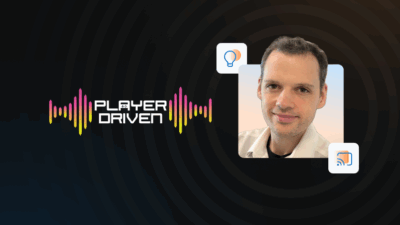Most CEOs don’t run the same company for over 15 years, but Alf Ruppert isn’t the typical tech founder. “I’m a bit closer to business owners from the 50s,” he admits — a time when he believes creating an enjoyable work environment was more highly valued.
This perspective is why at least four employees have been with the company since the beginning.
In 2006, founded iOSXpert — now the largest partner of the Mac-based CRM and project management software Daylite. And for the past 17 years, Alf has grown the company without any external funding and maintained a strong employee retention rate.
Our former Director of Content and Community spoke to Alf about managing a happy team, how he’s grown his company without external funding, the history of developing in the Mac ecosystem, and running a consulting and software business.
Stream the full interview below or find it wherever you listen to podcasts.
Full Interview: Audio-Only
Full Interview: Video
Transcript
Nathan Collier
Hey y’all. Thanks for joining me today. Hi. Hi. Introduce yourself, introduce iOSXpert, so that people know kind of a little bit of a context about what you do.
Alf Ruppert
Yeah, my name is Alf Ruppert, I was named like the guy that everybody knows for the TV shows in the 90s, or what the late 80s. Thanks God I was named earlier. That name was not as cool kid at that time. Yes, we, at iOSXpert, what are we doing? We are more or less a business consulting company as a software consulting company that as there are many outside, but we are specialized in Apple users, helping Apple users. And this was the original thing that we created: iOS experts and meanwhile, we are more getting becoming more and more software company. As we are making an enhancement for a CRM tool that we are selling. It’s Canadian’s CRM tool. It’s quite well known by Apple users, it’s named Daylite and for this Daylite System, we are creating plugins and enhancements and additional services and selling them around the world. Meanwhile, in over more than 120 countries.
Nathan Collier
And you are currently calling in from where in the world?
Alf Ruppert
So we are based in Bendorf, nobody knows the small city close to Koblenz. Koblenz is the place where the Rhine and Moselle River are meeting. And Koblenz is between Frankfurt and Cologne.
Nathan Collier
Okay, so you’re in Germany? Yes, yes. Okay, cool. You have been working on this company for a long time. So it looks like 2006. Is that right?
Alf Ruppert
Yes, I have even to look it up to give correct answers around around that time.
Nathan Collier
Yes. Your LinkedIn says April 2006. So yeah, but the the reason I asked that is, it’s pretty unusual for me to run into somebody who has been working on one project for that long. So I’m just I’m fascinated because 2006 is like, that’s way before iOS was even a thing. Like the iPhone is 2008. So take me back, like how did how did this project start? Like, how did you get started on this.
Alf Ruppert
So I always love to use the Mac. My very first job, real job was in a company back then in the 90s, end of the 90s. They were creating ERP software for Mac users. And this was totally strange, because you had to sell it to people in this world that time as Mac would cost you 10,000 German marks that time. And while a PC was around four or 5000. So it was very exotic, that you’re making business on Mac machines, not only using them for a creative world, even using them for real business properties. And I love that very much. And then there was this big ERP dying, which was shot after the first ecommerce new academy scene was going down for 2000 2001. And even at that, at that time, I had a company trying to establish a ecommerce solution based on the Apple database. And we had to shut down too, and then I was deeply searching to get my knowledge out and make something meaningful with all that knowledge that I had was Macs and with business things. And this is why I struggle to say when I started my business, I think in 2004 or five, I started I had a lot of free time because I had just lost my job it is big ERP going word was going down in Germany. So I put everything I knew on the internet it was my first website I created for myself it was it was a tool called rapidweaver which made me open up the internet from the other side for me. So I published everything I knew about business software on the Mac. And out of this there came it’s everything started because then I search for a new product to sell and found Daylite and get in contact with the Canadian guys and I often say it was a really cool thing I made it out of the internet because if I even know I’m at that age today even though the time before the internet it was the internet was really a game changer for me because the time before it was unsinkable that you’re doing business with a Canadian company that getting in touch wisdom and starting communication, but that ends up in the real meeting and then working together.
Nathan Collier
Yeah, it wasn’t that long ago that like what we’re doing right now with me. I’m sitting in the US, you’re sitting in Germany like this just didn’t, this would have been an international like long distance phone call at like $3 a minute or something paid to some telecom company. It’s interesting. So you had you publish all your content on the internet? This is 2014 classified right in there you, you in did you pick up consulting clients? Or was it was it straight to software?
Alf Ruppert
It was just, I had to have this niche knowledge about business workflow stuff and ERP systems and based on a Mac. So I wrote everything down, I knew if it ends up that I have my own history just safe for me, then I can take a look at years later. But it turned out that people contacting me and say, Oh, you have knowledge there, I never knew that. You’re the first one who has all this knowledge in one place. And aside from that, I always try to find a job back care getting paid for what I do. For this knowledge, and for working on a Mac, and on my way, searching for an opportunity, I found the CRM software and I was already always a product guy. So I need something I’ve fallen off and I can sell it easily. I’m not that guy, who’s what every one a lot of salespeople tell you, I can sell software, the next day cars or whatever, no, I have to fall in love with the thing I’m doing. And I found something and this was Daylite because it’s an attractive way very much. And I could see the benefit for customers. And so it slowly turned out it was the first one of my products recommended and to my consulting clients, and then it was that product that I recommended. Okay, and started growth.
Nathan Collier
So you started, you started consulting, and then you were recommended this product and then eventually started building, building software to even make that product better. So you’ve really gone the full spectrum with this particular product.
Alf Ruppert
Yes, it started because I know the very first piece of software we did for Daylite was to connection for phone systems, so that you can push a button and then call out or if somebody’s calling in, you can see which customers calling in. And the problem was, I have no clue in software development. So I just had this idea. And I had even no money to do it. So I found a developer made a deal with him and say I will sell it and you will participate if you trust me. And we did this together. And it was huge success.
Nathan Collier
I remember when that was happening because I was I was working at a company right around, you know, or 2010 around that time when that whole like making calls out of your computer tied to a CRM that was pretty new during I mean even I mean, that was after it had already been on the market. But I mean, if you go back to 2006 2007 2008 like that, yeah, that was just not a thing that people did. Like the way that we do it. Now we take it for granted now.
Alf Ruppert
Yes. Now the usual thing, but still not on still on the Mac, you have hurdles today because, on Windows PCs, there’s a there’s TAPI API. So it means it’s standard that the operating system has a phone connection, which the Mac doesn’t have. And funnily enough, the first iPhone didn’t have a too. So you weren’t able to utilize your iPhone from your Mac.
Nathan Collier
Yeah, if people forget like, and it’s hard to remember like it’s even the original iPhone launched with native apps and no app store like and that was that way for several years. So the iPhone as we know it today was not even the iPhone of 2008 and the iPhone of 2008 was revolutionary. So very interesting. So So you thought you find this product Daylite? What at risk of Daylite not a paid sponsor, right, like so. But you love this product? Like what was it about that product that really caught your attention and made you think like, this is great, like I want to work more on this.
Unified a couple of things. So it is not only it’s not only a tourist book, it is only it’s an integrated calendar and you can linking things together. Even it grabs your email. So that was was annoying. And if you see the standard tools on the Mac, even if you’re on a very low level, you compare it to Outlook and outlook. We have one application where you have your address books, your calendar and your emails. Even it’s worse linked, but it’s it’s one application on a Mac, it’s at least three applications. And Daylite does exactly that. put all these together. And then at project management and at opportunities for making estimates and doing sales stuff and all this is linked up together and you only need one solution which Jaya, it has changed, I think, as a special specialist in that area would say, this was my maybe attracted me because it was the idea of the 90s. And beginning 2000s, that you have one solution that covers everything, right? Meanwhile, the world has changed. And there are millions of apps and small services. And so even my idea of has changed in that way that I say today, I would say you need a central application, maybe like the digital hub: how Steve Jobs mentioned the iMac. And then you have attached things around, but you need one central application. And that’s the idea how we handle it. Today, we stay like we have Daylite is at the center that we have our enhancements. And a lot of the enhancements are relying on that that we are connecting different systems. It means we have a online booking system called Acuity that we integrated into Daylite, which is one of our plugins. And I liked this idea. Because if you have a clever integration of a couple of things, so it seems to the user that it’s one application, but there are several applications, then you can easily change to get better stuff. Because our work is so quick. Maybe in one year, there’s a way better solution for offering appointments online, and then we just have to connect this one. And if you can stay with the central application tailored.
Nathan Collier
I love that. So so this is so this nice transition into so the last time we talked, it’s been a couple of months, you we talked just very briefly about some of your just the way you think about business. And I think you’re starting to get a little bit of it there. So like what are some of the core like philosophies that you that you use to sort of guide your your business making decisions, because, again, 16 years, or however long however many years, it’s been to working on this project. It there’s a lot of entrepreneurs, you know, they build something, and then they sell it and they move on to the next thing. And they never they don’t like that that’s and there’s a whole there’s all well, and that’s great. Like that’s a whole, you can do that as a career. But you’ve chosen to sort of build one thing and stay with it for this long period of time. So what what what keeps you what keeps you focused on that kind of thing? And what are the sort of principles that you’ve used to make business decisions over the years.
So I always was attracted to. So there’s one important thing that made me an entrepreneur, I totally don’t like all these politics that you do have to do in bigger companies. So I wanted to have my created my own environment. And I love always to do to work in a team. And I think if you’re feeling safe, if you’re feeling comfortable work is there’s no big difference between work and free time. Just just, I like to go to work because it’s not nothing where I have to go there tomorrow or something like that. And it was very important for me to create a situation where everyone was working with me feels the same. So it was always important for me to take care for my employees. And, and I think I’ve mentioned in an informal conversation, maybe I’m a little bit at this point of view, I’m a little bit more closer to office owners or to to to business owners in the in the 50s. And in our days,
Nathan Collier
what do you what do you mean by because you have you said that a couple times? What do you mean by that?
Yeah. So I love to give you an example we are we are having our office in the former Coca Cola building. And at the 50s, they had very close to the office where I sit, they had a swimming pool for the employees. So they even they thought about creating something that that they can benefit from which can give an extra value to them that they feel good. And we can take their kids area to go swimming because there was no swimming pool can no public swimming pool at that time. So that’s that’s the thing that I if somebody, we recently had a guy here, he started as a trainee here. And he came from Kazakhstan, and he’s grown up and has to make a trainee, sing again because of the German laws and he has to need a new certificate. So and then he ended up that his car crashed, and he’s really not that much money. So we bought him a car. So everybody who’s working here should be aware that if he has problems that we can solve somehow, if it’s sometimes it was money sometimes was hands on if we move from one flight to another, and the whole team is there. And that’s the atmosphere that we have. That’s maybe the thing I’m most proud of that I created that atmosphere that attitude here in the whole company with a team I joined it.
Nathan Collier
Had it so so there are going to be entrepreneurs out there who are thinking, Okay, that sounds awesome. How did you do it? Like? How did like what are? What are some of the decisions you made? Like? What? Like, that’s a great example of a car. Yeah, what else have you done over the years that have sort of created that culture.
Alf Ruppert
So we have to calculate, and this is even more true today. And harder today that we have to compensate for talents. So and it’s, it’s for a smaller company like ours, we are I think we are with amoeba, 1670 people, it’s, it’s quite hard to be the best to the company who pays the most, because there are bigger companies that have way more money and to come try to compete on the money side. That’s a tough thing. And but what we did in the very first time, I think we do it now at least 15 years, we go skiing every year with the whole team, a whole weekend, for example. And we do some things like that, in the summer or summer when we were just trying to become somehow I want to say friends, friends, or maybe a little bit different thing, but it’s the kind of work family right, my American North American partners often call it work family. Because we have also people working long time for us, I have a couple, at least four people here that they’re more or less since the beginning.
Nathan Collier
How would you let’s talk to the to the aspiring entrepreneur for a minute. So for people who, who are thinking about they like kind of the way your philosophy the way you’re thinking about things, so build, build something, stay with it, build a place where people love to work, what what tips would you give them? What What suggestions do you have for somebody who’d like to build a company with that kind of culture?
Alf Ruppert
Yeah, there are a couple of things maybe first, quite easy one, try to be just a nice guy being fair. So not everyone is working for me that I can buy my second Porsche. So it’s an adult drive one was just a picture. It was at the very, very beginning, you feel fine people that are willing to make some overtures and really push hard to make to become a successful company, but don’t forget them if, if you take the first hurdles, then let them participate. So we have, we have to the two guys two guys from the very first time, I gave them shares, and they gave them shares as the as the company starts to become valuable. So they’re even more into it because it’s now part of them is even their company. Yeah, so, so share your success, if you want to say one sentence what else Yes, then trying to create that’s maybe a tough thing because he can we can give no recipe to do that, but trying to to make a comfortable, comfortable environment for everybody that that you are different from other companies. So in today’s world, while so many people are working removed, company culture is often getting lost. So and if you have people which don’t care how which kind of flag is on their roof, they’re just looking for they’re sitting in the same same environment, every working for company A or even working for Company B then you reduce everything to money, try to avoid it try to do something that it’s by on money that is created company culture, it’s maybe the the next step is I would say and we have I don’t read too many books because I know so many people constantly reading books and going to conferences and just thinking what is what they should do. And I would say I have what one thing I’ve learned from book was was write down your your company values. So we really created with a team we say what should define us and we found a couple of rules where we say these are our our company values, we will be respectful, together and respectful treating, will treating customers respectful and what we can even want the same from the customer. We want to our time as valuable. A couple of things but I didn’t wrote them down and Put them on the on the on the whiteboard. We did it together. What defines us as a company? What what is our, our scene where we want to get measured? Yeah,
Nathan Collier
I found that that’s very helpful. Yeah, the values, I found that they’re they’re often like, it’s an expression of who you are, which is different than goals, right, which is where you want to like what you want to be. That’s very interesting that you sort of got together and just described who you were, like who you were already that that that then codified that culture for you.
Alf Ruppert
And I use it every time I have job interviews, I put it on the table, they read it, and think for yourself, you will fit in there. If you can identify where you are with this core values, it’s a fair chance that you’ll fit into the team.
Nathan Collier
Right? Where do you go to sort of like to get new ideas or new inspiration? Is it conferences, books, magazines? Like, what? What how does that look?
Alf Ruppert
I think the most of the inspiration, I get out of conversation with customers. I’m still, even as my job changed. So because in the very first beginning, of course, I did everything. So it was the consultant guy, the support guy, and, and, and the sales guy. I mean, meanwhile, I have quite a lot of I often say I’m the person who knows, at least at a specific topic here in the company. I just have a good idea from every department. But I try to keep in direct conversation with customers. So I still do consulting sessions, even if it’s not that much as my colleagues and I still do sales staff that I I’m still in the conversation with customers of any size. So so I get to understand their needs. And can reflect that and can think about, hey, this guy has a problem that we couldn’t solve until the how we can make his life easier his business life. And out of that, we get ideas. And, and I don’t love to run around all these trends. I have a funny story. Business friend. He was a big friend of the SaaStr conference. So so he told me, you have to go and have a look there and there was one in Europe and I decided, Okay, we will go there. And we went there with three people. And I went to do this conference. And I was shocked because I was seeking I’m running to a time tunnel back in the 2000s. It was originally the same bullshit. As the internet’s first economy started. They were telling them I say I’m on the wrong part of the in the room. If so, I could stand there and tell people, because I already seen what what these young guys are speaking of. And I’m not sitting here and here again, disable ship ever had lost. Everything was about how can we make it look like bigger and sell it and get the next venture money? No, nobody had made one one euro revenue that. But everyone was was was everyone who said Oh, great. He got another 20 million venture company. Is it a success to get venture money? No successes if you build something and sell something and, and and make really money out of it?
Nathan Collier
Yeah. So we were just our head of product was just at the recent, like Sastre Europe conference, is there, do you think there’s a danger to go to a place like that, and, you know, some good, some bad but like that you get caught up in that sort of whole venture world where, where people are they talk an awful lot about funding rounds and those kinds of things. But it sounds like you’re more and I know this is true, but but I’d love for you to talk about it. You’re much more focused on building a company that’s, that’s profitable. And and you can see it like 2006 Up to now still still going. What what do you think the danger is of being too focused on those types of venture capital type ideas.
Alf Ruppert
I did this mistake, I already did this mistake because in 1998, I founded my first bigger company but which was the ecommerce stuff and this was just as the before the new economic 2001 everything crashed. Yeah. So yeah. And we built it up a software and then we went with our last money to the C bid which was a big thing that that time so for younger people watching this, this was a big trade show all about computers and software and the big biggest in the world and it was taking place. It took place in Hanover and I remember He took our last money rented the mobile home because we have no cash for having the proper hostel where they’ll say, if we don’t find someone giving us money, we will be dead after the after we found somebody went to a guy who gave us money. And then they force us to do you have to have to do this and that and that. And I was quite young at that age, and I followed their instructions and be blown away. I think at that time, it was one between five and 600,000 100 years I was on stage German mouths. I don’t remember that a long time. But it was quite a lot of money for us at that time. And and then they told us if the money is empty, just call us you can another round. Yeah, interesting. Unfortunately, I called them and it was 2001 and they say oh, the money all the money is gone. And, and then we had to close the company. And since that I promised, I will not take any money from from Venture people that are telling me what to do. I even told the the bank, we never needed the bank. Everything we reached from from here to meanwhile, close to 1.151 point 5 million euros revenue is that we financed ourself interesting. So I don’t even have a
Nathan Collier
You’re truly bootstrapped in the real sense of the word, like from the very beginning. What’s one thing that you hope people will remember after listening to this conversation?
Alf Ruppert
Don’t — especially if you’re an entrepreneur. Don’t let you … don’t hear that at this bullshit, they are telling you like an artist books and conferences to make quick money. It’s more enjoyable to build something long lasting, which not means that I’m not … if somebody would come around would say I give you 30 million euros, I will reverse the thinking to sell it. So that’s maybe the other side Don’t be if you choose the way that I choose, which I think that it’s the more attractive way than trying to fast build something up and sell it even before it makes the first euro or dollar of revenue. But on the other hand, don’t be too. So if there’s a business opportunity at the end of the day, and it’s better to sell or to let it go let it go. Yeah, so it’s a balance.
Nathan Collier
And you can do all that while operating at a profit. Is that what you’re saying?
Alf Ruppert
Yeah, yeah. You’re not successful. If you of course, our world will tell you you are successful if you sold something for 20 Millions, what would never made 1 million revenue, and you have to enable it in your pockets. But I will I feel more successful, to build something where which which is fine as in itself and paying out to salaries for my team and make a good living for a couple of families.
Nathan Collier
Yeah. So thanks, Alfred. Or Thanks, Jeff. It’s been it’s been great. If people want to sort of connect with you, how can they do that?
Alf Ruppert
Contact me via LinkedIn or just email me directly. You can find my all of my contact information on the on the website. I’m happy to share my experience to every entrepreneur. And yeah, maybe lead in can take a little bit time because I’ve learned 90% of and prepare for what you’re writing me there because 90% are starting to try to sell me something at the start of maze I don’t answer.
Nathan Collier
So maybe maybe say, Hey, I saw your I saw your interview or heard your podcast or something as as the opening. So thanks, alpha. Really appreciate it.
Alf Ruppert
Yeah, you’re welcome. Thank you very much.
![[Customer Story] Why TestDome Considers FastSpring a Real Partner](https://fastspring.com/wp-content/themes/fastspring-bamboo/images/promotional/2023/FastSpring-TestDome-blog-thumbnail.jpg)











